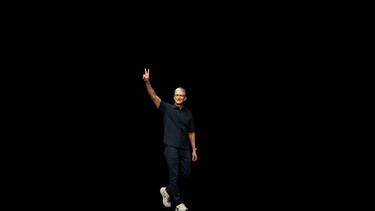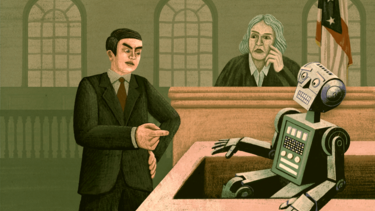Technology
AI Monopolists Could Be a Disaster for Workers
If artificial intelligence reshapes production across the entire economy, it could drive the cost of goods toward zero. But Yale SOM economist Fiona Scott Morton argues that if AI is captured by a small number of powerful firms, falling wages could coincide with persistently high prices, leaving workers far worse off.

Building a For-Profit Health Model That Reaches the Poorest
A wellness app created by Nneka Mobisson ’04 aims to help Nigerians manage chronic health conditions—while showing that for-profit innovation can make a difference for low-income populations.

‘Tough Tech’ Requires a Different Kind of Venture Capital
Engine Ventures, led by Katie Rae ’97, backs science-intensive innovation, including clean energy, quantum computing, and human health—an approach to venture capital defined by long timelines, deep expertise, and the potential for transformative impact.

How Millions of Simulated Maps Can Help Us Make Electoral Districts That Feel Fair
Part of resolving the political redistricting stalemate, writes Professor Jamie Tucker-Foltz, is creating congressional maps that align with human intuition about fairness.

Renewable Energy Is Easier Than Ever to Build—and Harder to Talk About
Advances in technology and a maturing development ecosystem have made renewable energy more economical, less risky, and increasingly rewarding for landowners, says Reid Buckley ’89, a partner at Orion Renewable Energy Group. But it has also become more politicized.

This Is How the AI Bubble Bursts
Yale SOM leadership expert Jeffrey Sonnenfeld and co-author Stephen Henriques write that the tangle of AI deals among tech giants could be signs of dangerous overinvestment in the developing technology. They outline three ways the bubble could pop.

Would Stricter Antitrust Rules Have Stopped the Rise of Amazon?
In a new study, Prof. Edward A. Snyder and his co-authors consider whether current antitrust guidelines would have checked Amazon’s voracious appetite for acquisitions if they had been in place earlier.

Tim Cook Is Still the Right Leader for Apple
Yale SOM leadership expert Jeffrey Sonnenfeld and co-author Steven Tian argue that Cook’s unmatched track record makes him uniquely positioned to steer the company into its next phase of innovation and growth.

Can Mark Zuckerberg Spend His Way to AI Success?
Meta has lured a string of top researchers from rivals with nine-figure pay packages in an effort to close the gap with AI leaders like OpenAI, Anthropic, and Google. But splashy hires rarely end up rescuing flailing enterprises, write Yale SOM leadership expert Jeffrey Sonnenfeld and co-author Steven Tian.

Will Self-Driving Cars Lower Ride-Hailing Prices?
Lower cost is one anticipated advantage of incorporating autonomous vehicles (AVs) into ride-hailing services. But a study co-authored by Prof. Zhen Lian suggests that lower prices will only materialize under certain market conditions, such as using a single app for both AVs and human drivers.

Who Is Responsible When AI Breaks the Law?
Former Secretary of Homeland Security Michael Chertoff and Miriam Vogel, president and CEO of EqualAI, survey how AI both fits in and breaks existing legal frameworks. They argue that leaders need to be ready for the opportunities created by the novel technology and for potential legal pitfalls.
